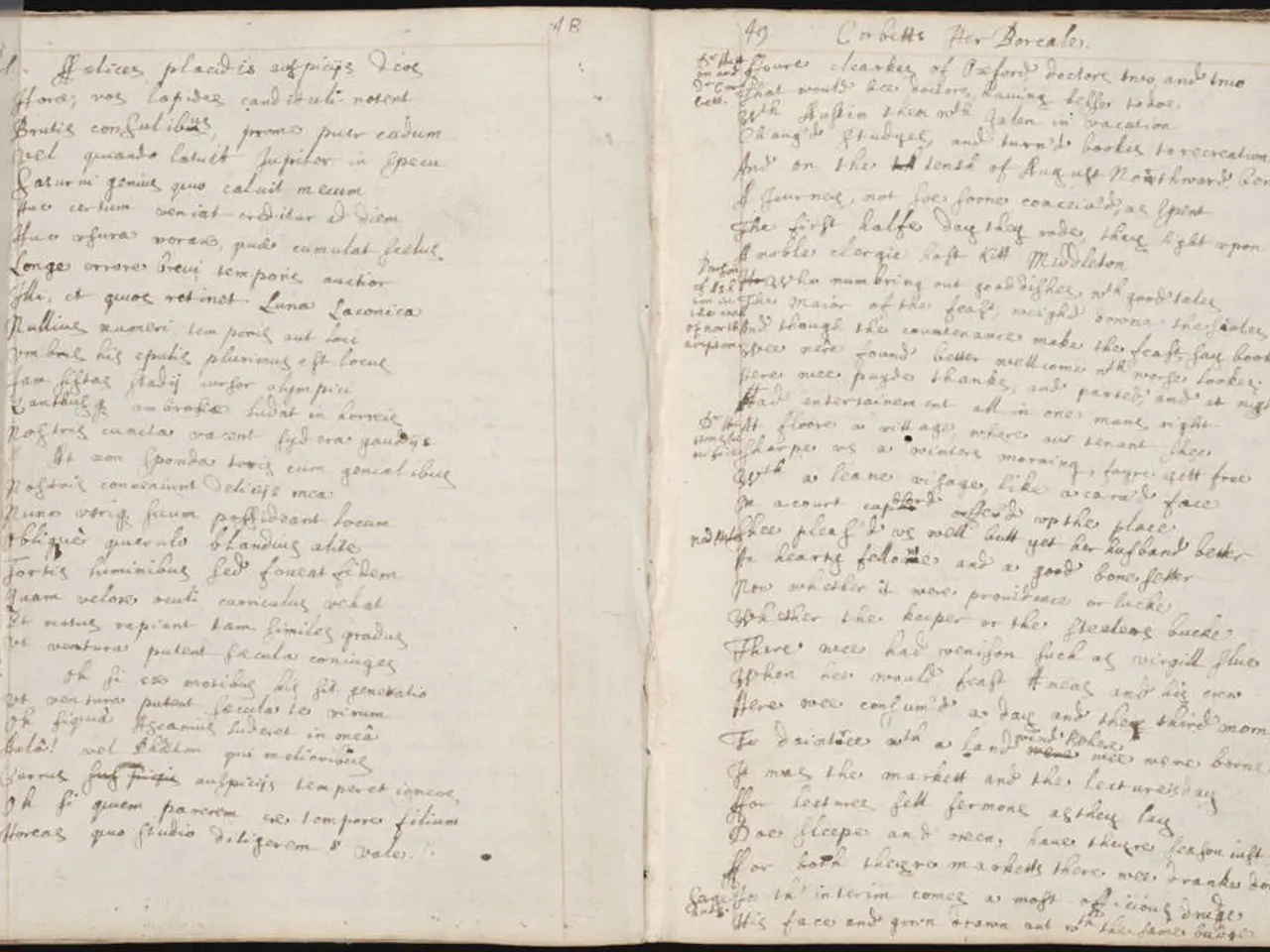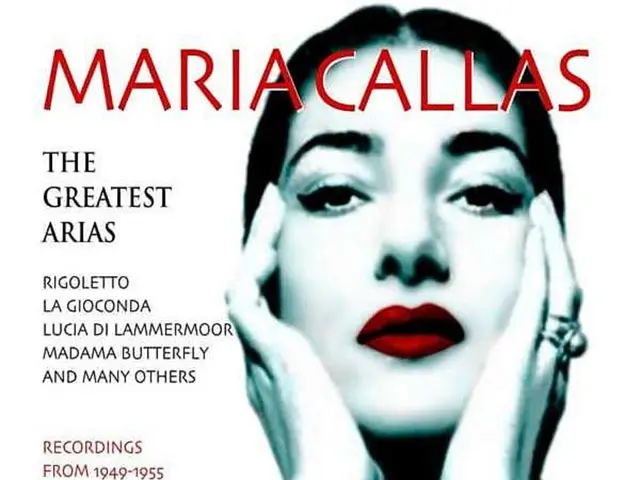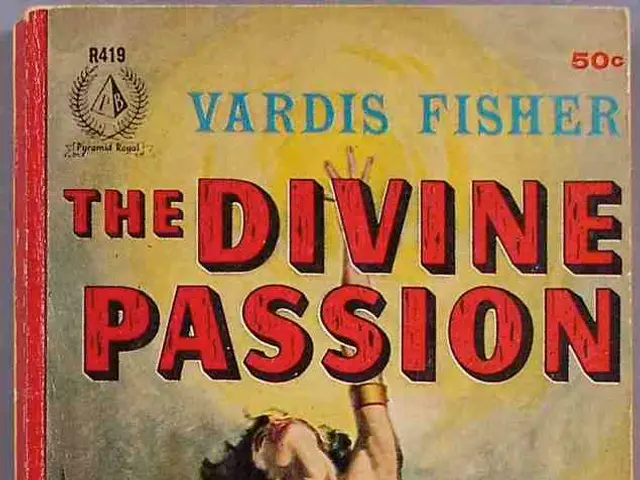Event of Terrifying Music Performances
In the world of literature, three unique books have recently graced German bookshelves, each offering a fresh perspective on language and storytelling.
First, Austrian writer Florian Neuner's "The Ultimate Total Trash. Uncut Edition" is a montage of excerpts from popular novels, transformed into a chaotic goo of horror. In this book, sentences serve as cheap meaning carriers for unimaginative actions, talk, and views, forming no original insights about reality through literary means. Neuner's work, a montage of pain, ultimately feels liberating, as it plays with the concept of literary trash without attributing quotes to prove the bad writing of specific authors.
Next, Theresa Luserke's debut book "ist liegt hinterm haus" draws from diverse sources including the Gospel of Matthew, Saint Teresa of Ávila, Karat lyrics, Andreas Gryphius, Elke Erb, Monika Rinck, and more. Luserke's writing incorporates everyday informality and challenges fixed grammatical structures with subtle shifts in meaning, permutations, and neologisms. Her work features a question that explores the fluidity of language: "the captivating speech / dogs hang on it // or are they lambs? / or pigs? / do they hang on it? / or can they also strangle the / one who speaks?" Luserke grants German syntax great freedom and incorporates English in her writing. Her work also includes observations of bodies, engagements with animals like guard dogs, horses, and deer. The book ends with a unique farewell message "you are such beautiful weather!" sent from a smartphone.
Luserke's writing style can be associated with procedures of "écriture féminine" and the language-critical procedures of the Vienna School.
Meanwhile, Italian poet Andrea Zanzotto's volume "Haiku" with the triple subtitle "(for a season) (per una stagione) (for a season)" is now available in German, thanks to translator Theresia Prammer. Zanzotto's "Haiku" collection explores linguistic philosophy and how the author uses the world and scientific language against its own goo, implying that only the language that escapes can re-establish a connection between word and thing. Zanzotto's "pseudo-haiku" texts, written in "mini-English" in 1984, remained largely unseen until now and bear witness to the author's severe depression and the enabling power of a foreign language in writing again. Poppies, a "star system," and a Hamlet quote appear in Zanzotto's "Haiku" collection.
Zanzotto was an Italian poet, a former anti-fascist resistance fighter, waiter, and teacher of ancient languages in Veneto. He was familiar with Lacan's language-focused psychoanalysis.
Theresia Prammer, who translated Pasolini's poetry and placed Zanzotto's "Haiku" collection within his work, explored its linguistic philosophy in an insightful afterword.
Florian Neuner is known for contributions to philosophy and theology often published in academic journals, while Luserke published works mainly in Germany focusing on educational theory and literature.
Each of these books offers a unique exploration of language and storytelling, pushing the boundaries of conventional literature and inviting readers to reconsider their understanding of these fundamental elements of human expression.
Read also:
- Today's most impactful photographic moments
- Support for Eric Adams in The Post's Letters to the Editor on August 13, 2025
- Roosting Shark and Rambunctious Red Squirrels: Unconventional House Rental in Yorkshire Involving Aquatic Marvel, Squirrely Mayhem, and Mystical Planning Regulations
- Legal Dispute Dismissed with Humor: Supreme Court Laughs off Another Civil Matter Mislabeled as Criminal Prosecution








